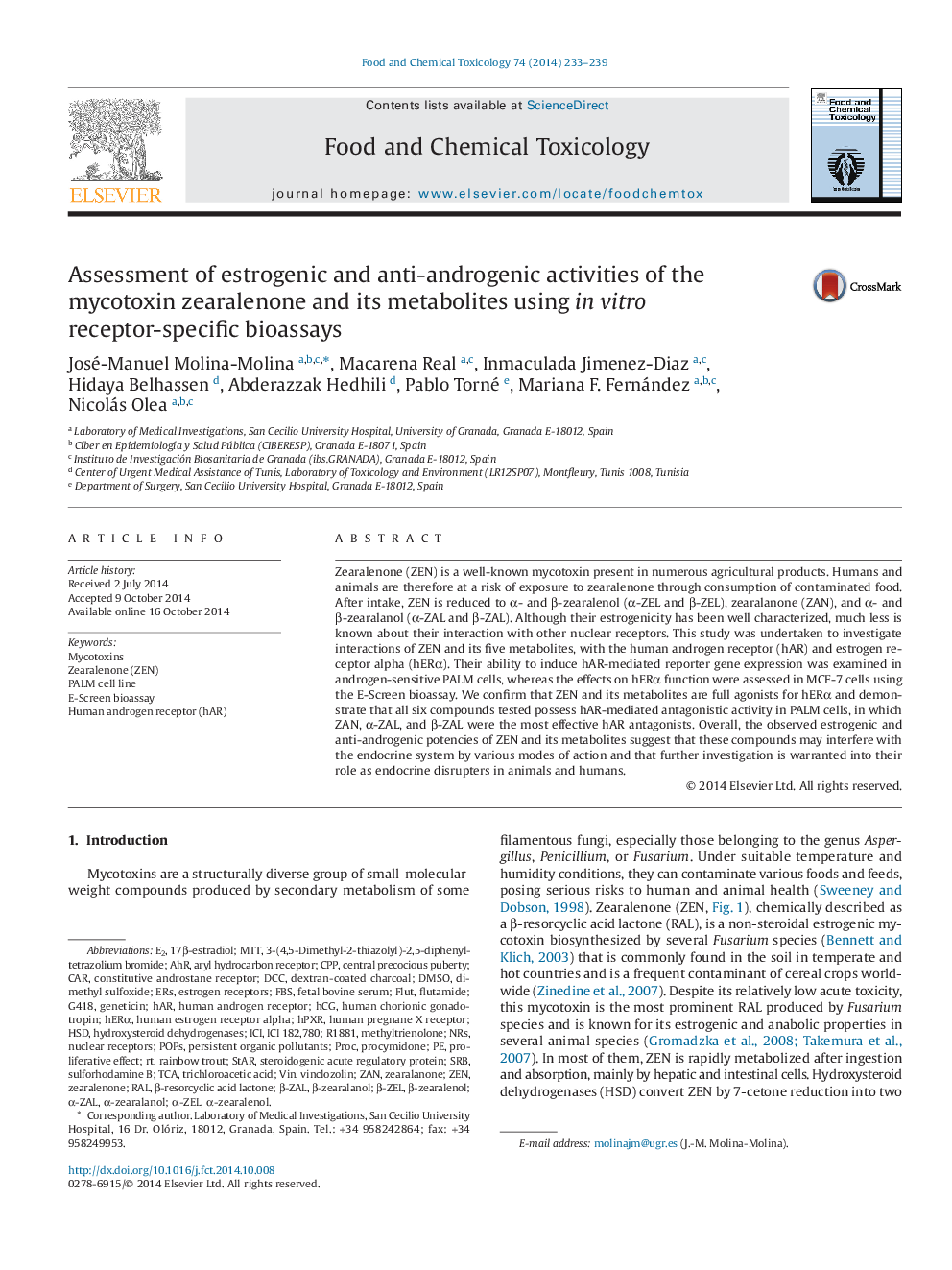| کد مقاله | کد نشریه | سال انتشار | مقاله انگلیسی | نسخه تمام متن |
|---|---|---|---|---|
| 5849996 | 1561770 | 2014 | 7 صفحه PDF | دانلود رایگان |

Highlight
- We investigated the agonist/antagonist activities of ZEN and its metabolites.
- Interactions with hERα and hAR were studied by in vitro receptor-specific bioassays.
- ZEN and its metabolites behaved as full hERα agonists in the E-Screen bioassay.
- We found that all six compounds possess hAR-mediated antagonistic activity.
- The metabolites ZAN, α-ZAL and β-ZAL were the most potent hAR antagonists.
Zearalenone (ZEN) is a well-known mycotoxin present in numerous agricultural products. Humans and animals are therefore at a risk of exposure to zearalenone through consumption of contaminated food. After intake, ZEN is reduced to α- and β-zearalenol (α-ZEL and β-ZEL), zearalanone (ZAN), and α- and β-zearalanol (α-ZAL and β-ZAL). Although their estrogenicity has been well characterized, much less is known about their interaction with other nuclear receptors. This study was undertaken to investigate interactions of ZEN and its five metabolites, with the human androgen receptor (hAR) and estrogen receptor alpha (hERα). Their ability to induce hAR-mediated reporter gene expression was examined in androgen-sensitive PALM cells, whereas the effects on hERα function were assessed in MCF-7 cells using the E-Screen bioassay. We confirm that ZEN and its metabolites are full agonists for hERα and demonstrate that all six compounds tested possess hAR-mediated antagonistic activity in PALM cells, in which ZAN, α-ZAL, and β-ZAL were the most effective hAR antagonists. Overall, the observed estrogenic and anti-androgenic potencies of ZEN and its metabolites suggest that these compounds may interfere with the endocrine system by various modes of action and that further investigation is warranted into their role as endocrine disrupters in animals and humans.
Journal: Food and Chemical Toxicology - Volume 74, December 2014, Pages 233-239